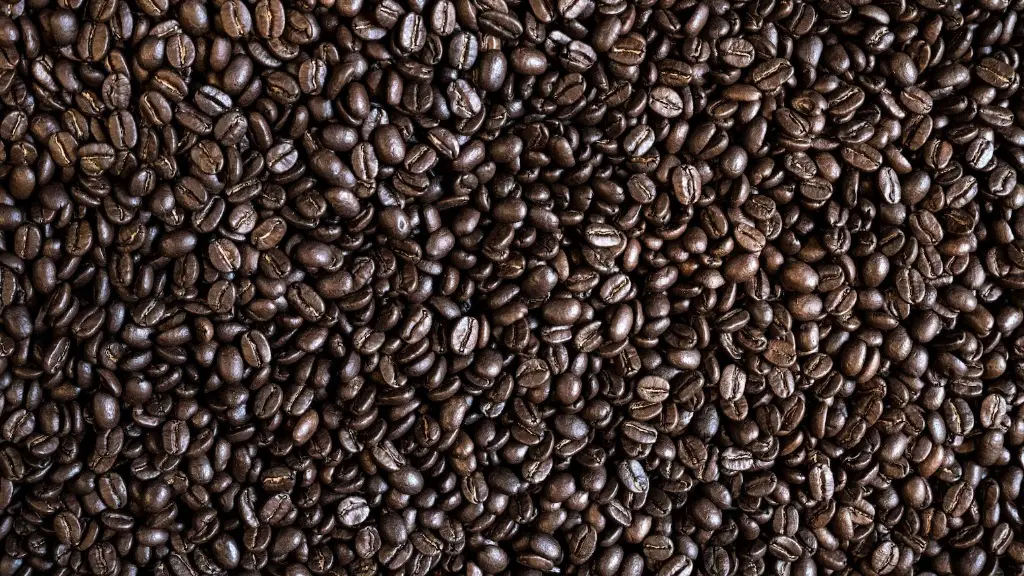Many people are concerned about the impact of consuming caffeine. While an occasional cup of coffee can provide beneficial antioxidants and other beneficial chemicals, drinking too much can be harmful. In particular, some believe that drinking coffee can increase the risk of heart attack.
There are some studies that seem to suggest that drinking coffee can increase the risk of heart attack. One such study was conducted by researchers from the Harvard School of Public Health and published in the British Medical Journal in 2019. In this study, the researchers looked at the data from over 1.3 million people. They found that consuming more than 4 cups of coffee per day was associated with an increased risk of heart attack.
While this study suggests that there may be a link between coffee consumption and heart attack risk, it is important to note that it is not conclusive. The researchers noted that the association between coffee drinking and heart attack risk was only marginally significant, meaning that more research is needed to confirm any connection. In addition, the study did not take other lifestyle factors into account, such as diet, physical activity, or alcohol consumption. It is possible that these factors may be playing a role in the observed link.
Some experts argue that while there may be a link between coffee consumption and heart attack risk, it is likely to be influenced by other factors. Stephen Devries, MD, director of The Center for Preventive Cardiology at Northwestern University’s Feinberg School of Medicine, believes that drinking coffee on its own is not a risk factor for heart attack. Rather, he believes that if someone drinks coffee combined with other activities such as smoking or poor diet, then it could increase the risk of heart attack.
Overall, it is not clear whether drinking coffee increases the risk of heart attack. Some studies suggest that there may be a link, but more research is needed to confirm this. In the meantime, it is important to be aware of the potential risks of excessive coffee consumption and to remember that lifestyle choices such as diet and physical activity can have a significant impact on one’s overall health.
Caffeine Content of Coffee Drinks
Coffee can be consumed in many different forms, from regular coffee drinks to energy drinks, and each type of coffee product contains various levels of caffeine. Regular coffee contains approximately 95 mg of caffeine per cup, while some energy drinks contain more than double this amount. It is important to be aware of the caffeine content of any coffee drink before consuming it, as consuming too much caffeine can also be harmful.
Caffeine is a stimulant, which means it can increase energy levels and alertness. This can be beneficial in small doses, but consuming too much can have the opposite effect. Some people can become dependent on caffeine and experience withdrawal symptoms without it. In addition, there are other potential health risks associated with excessive caffeine consumption, such as high blood pressure and irregular heartbeats. It is important to be conscious of consuming caffeine responsibly.
Caffeine is also added to many food products, such as chocolate, gum and soft drinks. While these products are not usually considered to be a health risk, an excess of these products can still increase caffeine consumption and lead to potential health risks. It is important to be aware of the caffeine content of any product that is consumed.
Coffee and Mental Health
The consumption of coffee has been linked to a number of mental health benefits. Studies have found that drinking coffee on a regular basis can reduce the risk of developing depression and other mental health conditions, as well as help to improve mood and enhance cognitive function.
However, it is important to be aware that the effects of coffee on mental health can vary from person to person. In some individuals, excessive amounts of coffee can increase anxiety and lead to restlessness. Others may find that their anxiety increases due to the stimulant effect of caffeine. It is important to be aware of any potential effects of coffee on mental health and to talk to a medical professional if any concerns arise.
In addition, some people may find that their mood is affected by drinking coffee. This can be due to the caffeine content, but other factors may also be at play. For example, some people may not process caffeine efficiently, which can lead to feelings of depression or anxiety.
Overall, it is important to be aware of any potential effects of consuming coffee on mental health. Talk to a doctor or mental health professional if any concerns arise, and remember that everyone reacts to coffee differently.
Coffee and Sleep
The effects of coffee on sleep can vary from person to person. Generally, as a stimulant, drinking coffee can make it more difficult to fall asleep and stay asleep for long periods. In addition, drinking coffee too late in the day or consuming too much can lead to insomnia and other sleep issues.
There are a few things that can be done to reduce the effects of coffee on sleep. Firstly, it is important to try and avoid consuming caffeine in the afternoon or evening, as this can lead to difficulty sleeping. Additionally, limiting caffeine consumption to less than 400-500 mg a day can help reduce sleep disruptions. In some individuals, cutting out coffee entirely can also help to improve sleep.
It is also important to create good sleep habits. Going to bed and waking up at consistent times and limiting other stimulants such as alcohol and nicotine can help to improve sleep quality. In addition, engaging in a relaxing activity before bed, such as reading or meditation, can also be beneficial.
Overall, coffee can have an effect on sleep, but this varies from person to person. It is important to be aware of this and to adjust caffeine consumption accordingly, as well as creating good sleep habits.
Coffee Alternatives
For those who are looking to reduce their coffee intake, there are a number of alternatives that can be explored. There are several caffeine-free drinks such as herbal tea and matcha that can provide a satisfying and energizing pick-me-up without the stimulating effects of caffeine. Additionally, many herbal remedies such as ashwagandha, ginseng and guarana can provide energy and improve focus without overstimulation.
For those who are looking for a more natural source of energy, many fruits, vegetables, nuts and seeds contain numerous minerals, vitamins and antioxidants that can provide an energy boost. For example, acombination of apples, bananas, goji berries and cacao can provide a natural energy source.
In addition, yoga and tai chi can help to reduce stress levels and provide energy. These activities can be done anywhere and provide a calming, energizing effect without the need for caffeine or other stimulants.
Overall, there are many alternatives to coffee for those who are looking to reduce their caffeine consumption without sacrificing energy and focus. By exploring these options, it is possible to enjoy the benefits of an occasional cup of coffee without the potential risks.





